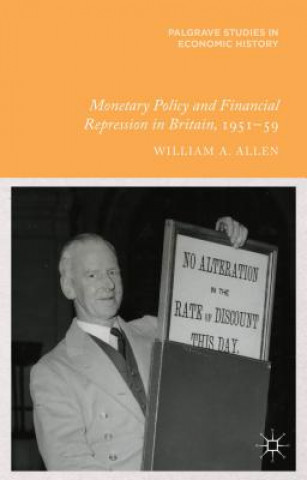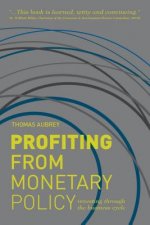
Doručenie
Nákupný poradca





Nehodí sa? Žiadny problém! U nás môžete do 30 dní vrátiť
 Darčekový poukaz
v ľubovoľnej hodnote
Darčekový poukaz
v ľubovoľnej hodnote
S darčekovým poukazom nešliapnete vedľa. Obdarovaný si za darčekový poukaz môže vybrať čokoľvek z našej ponuky.
Monetary Policy and Financial Repression in Britain, 1951 - 59
 Angličtina
Angličtina
 304 b
304 b
30 dní na vrátenie tovaru
Mohlo by vás tiež zaujímať


Following the end of the Second World War, Britain enjoyed a period of prosperity and rapid growth in the 1950s. British monetary policy was reactivated by the newly-elected Conservative government in 1951 when short-term interest rates were increased for the first time in nearly two decades. However, inflation was a recurrent problem and there were repeated sterling crises. This text explores the politics of formulating monetary policy in the 1950s and the techniques of implementing it, and discusses the parallels between the present monetary situation and that of 1951. Drawing on official archives, this study describes how monetary policy was decided on, implemented and communicated at a time when the government was struggling with massive post-war debts while maintaining welfare and military spending and cutting taxes. It discusses the roles of the Governor of the Bank of England, Cameron Cobbold, and of successive Chancellors R.A. Butler, Harold Macmillan, Peter Thorneycroft and Derick Heathcoat Amory, and Macmillan's continued dominance of monetary policy after he became Prime Minister. It explains the intimate relationships between monetary policy, government debt management and fiscal policy, and the use of 'financial repression'. Monetary Policy and Financial Repression in Britain, 1951-59 provides an insightful view into Britain's economy in the 1950s and is essential reading for students, researchers and scholars of British history and economics.
Informácie o knihe
 Angličtina
Angličtina




 Ako nakupovať
Ako nakupovať



























